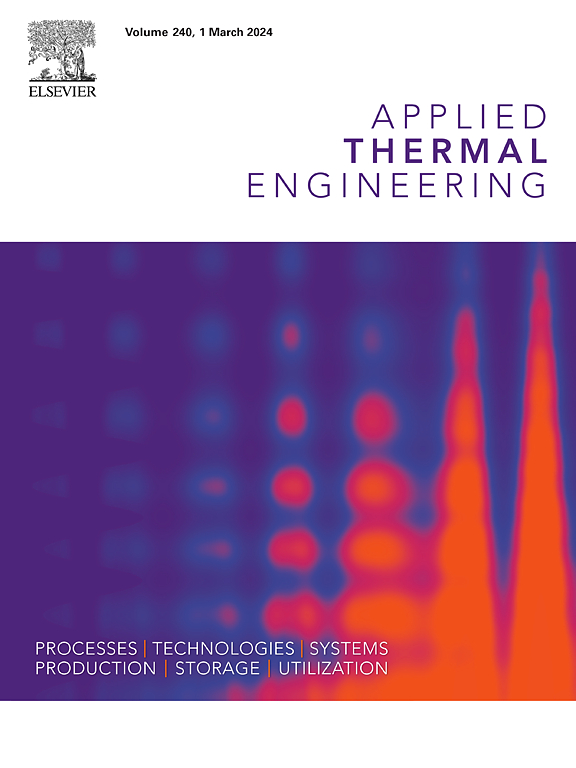Hygrothermal performance of hybrid multi-storey buildings under future climate scenarios
IF 6.9
2区 工程技术
Q2 ENERGY & FUELS
引用次数: 0
Abstract
Climate change, energy efficiency, and carbon footprint objectives pose significant challenges to the hygrothermal performance of building structures in climates with extreme temperature variations. To meet long term sustainability targets, buildings designed for a lifespan of up to 100 years must exhibit resilience not only to current climate conditions but also to projected future scenarios. This study evaluated the hygrothermal performance of a hybrid log-concrete multi-storey building, combining the structural strength of concrete with the sustainable, moisture-regulating properties of wood, to address energy efficiency and moisture control challenges in subarctic climates. Onsite measurements were validated using numerical simulations to assess hygrothermal performance of log wall structure under climate change scenarios. Results showed minimal mould growth risk under present conditions, while future climate projections (RCP8.5 for 2080) indicated a maximum mould index of 1.32 near the exterior log surface. These findings highlight the resilience of log-based structures in cold climates and underscore the need for proactive moisture management under warmer, more humid future scenarios. Stable ideal indoor temperatures (averaging 21.56 °C to 22.09 °C) and effective moisture control (with a maximum average moisture excess of 0.89 g/m3) over the measurement period further demonstrate the suitability of hybrid log-concrete buildings for energy-efficient, moisture-regulating construction in cold climates. The study recommends surface treatments that allow vapour diffusion while preserving wood’s hygroscopic qualities to enhance durability in changing climates.
未来气候情景下混合多层建筑的湿热性能
气候变化、能源效率和碳足迹目标对极端温度变化气候下建筑结构的湿热性能提出了重大挑战。为了实现长期的可持续发展目标,设计寿命长达 100 年的建筑不仅要能适应当前的气候条件,还要能适应未来的预测情况。这项研究评估了原木-混凝土混合多层建筑的湿热性能,该建筑结合了混凝土的结构强度和木材的可持续湿度调节特性,以应对亚北极气候条件下的能效和湿度控制挑战。现场测量结果通过数值模拟进行验证,以评估原木墙体结构在气候变化情况下的湿热性能。结果表明,在当前条件下,霉菌生长风险极小,而未来气候预测(2080 年 RCP8.5)表明,原木外表面附近的最大霉菌指数为 1.32。这些研究结果凸显了原木结构在寒冷气候下的适应能力,同时也强调了在未来气候更温暖、更潮湿的情况下进行积极湿度管理的必要性。在测量期间,稳定的理想室内温度(平均 21.56 °C 至 22.09 °C)和有效的湿度控制(最大平均湿度过剩量为 0.89 g/m3)进一步证明了混合原木混凝土建筑适用于寒冷气候条件下的节能、湿度调节建筑。该研究建议在保持木材吸湿性的同时进行表面处理,以便在不断变化的气候条件下提高耐久性。
本文章由计算机程序翻译,如有差异,请以英文原文为准。
求助全文
约1分钟内获得全文
求助全文
来源期刊

Applied Thermal Engineering
工程技术-工程:机械
CiteScore
11.30
自引率
15.60%
发文量
1474
审稿时长
57 days
期刊介绍:
Applied Thermal Engineering disseminates novel research related to the design, development and demonstration of components, devices, equipment, technologies and systems involving thermal processes for the production, storage, utilization and conservation of energy, with a focus on engineering application.
The journal publishes high-quality and high-impact Original Research Articles, Review Articles, Short Communications and Letters to the Editor on cutting-edge innovations in research, and recent advances or issues of interest to the thermal engineering community.
 求助内容:
求助内容: 应助结果提醒方式:
应助结果提醒方式:


